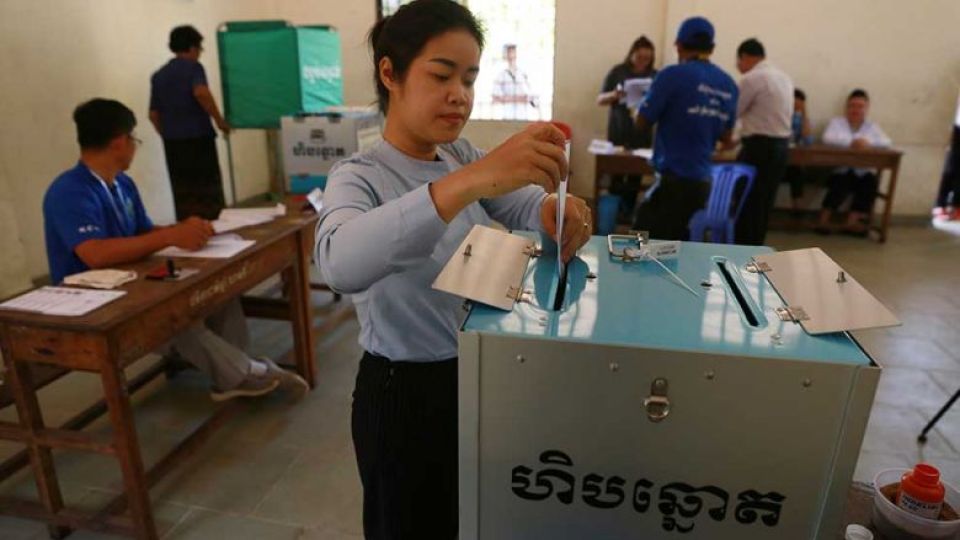March 10, 2022
PHNOM PENH – Minister of Interior Sar Kheng said the 2022 commune council election scheduled for June 5 would mark 20 years in which Cambodia has effectively practiced democracy and sub-national reform. He said that in spite of some drawbacks, its democracy is moving forward.
At a March 9 meeting to review the 2021 progress and 2022 work plan of the Preah Sihanouk Provincial Administration, Sar Kheng said 17 political parties have registered their candidates for the commune elections, which shows the “game of democracy” in the Kingdom is improving.
He said the 17 parties, including the ruling Cambodian People’s Party (CPP), will have to compete for the support of the people in each commune across the country – in accordance with the Constitution.
“In Preah Sihanouk province, 11 parties have registered for the election, which is more than many other provinces. This is called the game of democracy. We have to compete against other parties to gain the people’s support,” he said.
The minister, who is also vice-president of the CPP, instructed all officials to behave morally, justly and to remember they serve the public at the local level to gain its support in the upcoming election.
“If we do not provide the people with the service they deserve, they will not be impressed with us and we will not secure their votes. This is the power of the public in a democracy,” he added.
Sar Kheng said that through the June 5 commune election, which will reach its fifth mandate this year, the government has reformed commune administration management and the law on capital and provincial management through decentralisation and deconcentration.
Cambodia has implemented a series of plans and steps based on the 10-year national programme for sub-national democratic development which it completed in 2021. The second phase of this national programme 2021-2030 will be put into effect on March 21.
Lek Sothear, spokesman for the Grassroots Democratic Party, said both commune and national elections are conducted at a fair and appropriate time every five years. This is an indication of Cambodia’s consistently practiced democracy.
Commune administrations also receive funding for development at the local level, including funds to accelerate decentralisation and deconcentration. In each election there are many political parties, which illustrates the normalcy of democracy. But even after 20 years of these elections, some communes are not yet capable of leading and developing themselves, he told The Post on March 9.
“According to the law, budgets are allocated to the communes, but in reality it does not work like that. The commune election candidates are party officials whose bosses are at the district and national levels,” Sothear said.
“Most of the time, they use the political platform of a party at the national level to guide the direction of the grassroots rather than using policies at the grassroots level to develop their parties,” he said.
CPP spokesman Sok Eysan said the large number of parties which have nominated candidates for the election reflects the depth and breadth of the democratic space in Cambodia, and the freedom of participation that the Kingdom’s Constitution provides.


